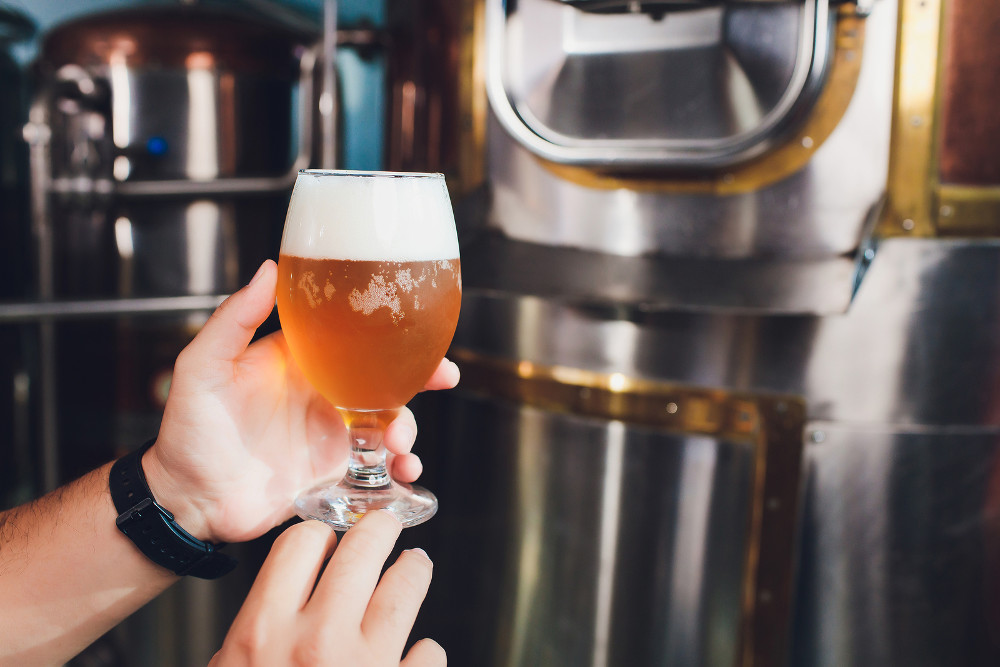The craft beer industry is booming, but with increased production comes an increased responsibility to our planet. With the narrative across all industries shifting towards transparency and sustainable practices from brands, a change in consumer consciousness is driving a wave of eco-friendly innovation in the brewing world.
While all breweries have different initiatives regarding sustainability, such as focusing on sourcing ingredients locally to reduce their carbon footprint, true sustainability runs deeper than buying locally. It’s about investing in quality ingredients, remaining transparent, and minimising waste.
Dorking Brewery commented on the importance of responsible craft beer production. Neel Singh, MD and owner of Dorking Brewery, said: “Sustainability isn’t a trend; it’s a responsibility. For us, it’s about making the best beer possible while doing it in a considered and responsible way. That means supporting businesses that align with our own values to source ingredients, optimising water usage, and finding innovative ways to reduce waste while ensuring an unbeatable product.”

Here’s how the industry is embracing sustainability
Energy efficiency: Breweries are investing in energy-efficient equipment and renewable energy sources like solar power to achieve environmental goals.
Water conservation: Water is a crucial ingredient in beer but requires high volumes (between four and six litres of water produce one litre of beer). Breweries are implementing water-saving initiatives and recycling programmes to minimise their water footprint.
Waste reduction: From spent grain to packaging waste, breweries are finding creative ways to reduce, reuse, and recycle. There are many uses for spent grain, such as compost or livestock feed.
Sustainable packaging: Many breweries are ditching plastic six-pack rings for recyclable cardboard alternatives or exploring innovative packaging solutions like refillable growlers.

Supporting sustainable agriculture: Breweries that partner with sustainable hop farms and maltsters ensure the long-term health of the ingredients that make their beer possible.
Dorking Brewery is a prime example of a brewery committed to these principles, with Neel adding: “We believe that quality and sustainability go hand in hand. By investing in the best ingredients and processes, we can create exceptional beers while having full understanding and clarity on what goes into our beers, and how it gets there. This dedication sets a high standard for the industry and is one that we consistently uphold and strive to exceed.”
Final thoughts
The craft beer industry is moving towards a more sustainable future. From energy-efficient equipment to innovative packaging solutions and a focus on local sourcing, breweries increasingly recognise their responsibility to the planet.
As consumers continue to expect transparency and eco-conscious practices, the industry will continue to evolve, raising the bar for sustainability and proving that great beer can go hand-in-hand with environmental consciousness. Cheers to a greener pint!






















